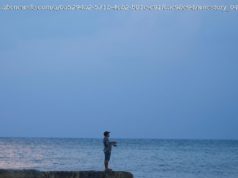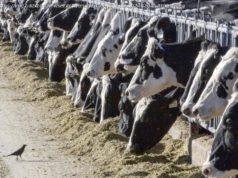Trump administration officials have been sending babies and other young children forcibly separated from their parents at the U. S.-Mexico border to at least three “tender age” shelters …
Trump administration officials have been sending babies and other young children forcibly separated from their parents at the U. S.-Mexico border to at least three “tender age” shelters in South Texas, The Associated Press has learned.
Lawyers and medical providers who have visited the Rio Grande Valley shelters described play rooms of crying preschool-age children in crisis. The government also plans to open a fourth shelter to house hundreds of young migrant children in Houston, where city leaders denounced the move Tuesday.
Since the White House announced its zero tolerance policy in early May, more than 2,300 children have been taken from their parents at the U. S.-Mexico border, resulting in a new influx of young children requiring government care. The government has faced withering critiques over images of some of the children in cages inside U. S. Border Patrol processing stations.
Decades after the nation’s child welfare system ended the use of orphanages over concerns about the lasting trauma to children, the administration is standing up new institutions to hold Central American toddlers that the government separated from their parents.
“The thought that they are going to be putting such little kids in an institutional setting? I mean it is hard for me to even wrap my mind around it,” said Kay Bellor, vice president for programs at Lutheran Immigration and Refugee Service, which provides foster care and other child welfare services to migrant children. “Toddlers are being detained.”
Bellor said shelters follow strict procedures surrounding who can gain access to the children in order to protect their safety, but that means information about their welfare can be limited.
By law, child migrants traveling alone must be sent to facilities run by the U. S. Department of Health and Human Services within three days of being detained. The agency then is responsible for placing the children in shelters or foster homes until they are united with a relative or sponsor in the community as they await immigration court hearings.
But U. S. Attorney General Jeff Sessions’ announcement last month that the government would criminally prosecute everyone who crosses the U. S.-Mexico border illegally has led to the breakup of migrant families and sent a new group of hundreds of young children into the government’s care.
The United Nations, some Democratic and Republican lawmakers and religious groups have sharply criticized the policy, calling it inhumane.
Not so, said Steven Wagner, an official with the Department of Health and Human Services.
“We have specialized facilities that are devoted to providing care to children with special needs and tender age children as we define as under 13 would fall into that category,” he said. “They’re not government facilities per se, and they have very well-trained clinicians, and those facilities meet state licensing standards for child welfare agencies, and they’re staffed by people who know how to deal with the needs — particularly of the younger children.”
Until now, however, it’s been unknown where they are.
“In general we do not identify the locations of permanent unaccompanied alien children program facilities,” said agency spokesman Kenneth Wolfe.
The three centers — in Combes, Raymondville and Brownsville — have been rapidly repurposed to serve needs of children including some under 5. A fourth, planned for Houston, would house up to 240 children in a warehouse previously used for people displaced by Hurricane Harvey, Mayor Sylvester Turner said.
Turner said he met with officials from Austin-based Southwest Key Programs, the contractor that operates some of the child shelters, to ask them to reconsider their plans. A spokeswoman for Southwest Key didn’t immediately reply to an email seeking comment.
“And so there comes a point in time we draw a line and for me, the line is with these children,” said Turner during a news conference Tuesday.
On a practical level, the zero tolerance policy has overwhelmed the federal agency charged with caring for the new influx of children who tend to be much younger than teens who typically have been traveling to the U. S. alone. Indeed some recent detainees are infants, taken from their mothers.
Doctors and lawyers who have visited the shelters said the facilities were fine, clean and safe, but the kids — who have no idea where their parents are — were hysterical, crying and acting out.
“The shelters aren’t the problem, it’s taking kids from their parents that’s the problem,” said South Texas pediatrician Marsha Griffin who has visited many.
Alicia Lieberman, who runs the Early Trauma Treatment Network at University of California, San Francisco, said decades of study show early separations can cause permanent emotional damage.
“Children are biologically programmed to grow best in the care of a parent figure. When that bond is broken through long and unexpected separations with no set timeline for reunion, children respond at the deepest physiological and emotional levels,” she said. “Their fear triggers a flood of stress hormones that disrupt neural circuits in the brain, create high levels of anxiety, make them more susceptible to physical and emotional illness, and damage their capacity to manage their emotions, trust people, and focus their attention on age-appropriate activities.”
Days after Sessions announced the zero-tolerance policy, the government issued a call for proposals from shelter and foster care providers to provide services for the new influx of children taken from their families after journeying from Honduras, El Salvador, Guatemala and Mexico.
As children are separated from their families, law enforcement agents reclassify them from members of family units to “unaccompanied alien children.” Federal officials said Tuesday that since May, they have separated 2,342 children from their families, rendering them unaccompanied minors in the government’s care.
While Mexico is still the most common country of origin for families arrested at the border, in the last eight months Honduras has become the fastest-growing category as compared to fiscal year 2017.
During a press briefing Tuesday, reporters repeatedly asked for an age breakdown of the children who have been taken. Officials from both law enforcement and Health and Human Services said they didn’t know how many children were under 5, under 2, or even so little they’re non-verbal.
“The facilities that they have for the most part are not licensed for tender age children,” said Michelle Brane, director of migrant rights at the Women’s Refugee Commission, who met with a 4-year-old girl in diapers in a McAllen warehouse where Border Patrol temporarily holds migrant families. “There is no model for how you house tons of little children in cots institutionally in our country. We don’t do orphanages, our child welfare has recognized that is an inappropriate setting for little children.
Home
United States
USA — mix Youngest migrants separated from their parents held in ‘tender age’ shelters






